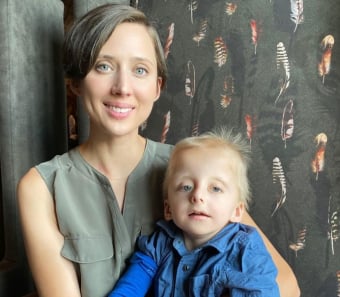FISH analysis for DiGeorge/Velocardiofacial (VCF) syndrome is a cytogenetic test used to identify deletions or duplications in chromosome region 22q11.2. FISH is also utilized to confirm microdeletions identified during high resolution chromosome analysis.
28 days; 7 day rush for infants
88275, 88273, 88271, 88291
$584
Fluorescence in situ hybridization is a molecular cytogenetic technique in which fluorescently labeled DNA probes are hybridized to metaphase spreads or interphase nuclei. Applications include identification of structurally abnormal chromosomes, including identification of marker chromosomes, detection of very small deletions (microdeletions), and rapid detection of Down syndrome and other numerical chromosome abnormalities; and the rapid detection of sex chromosomes and the SRY gene. FISH should be used in conjunction with G-banded chromosome analysis. FISH is performed upon request when a specific numerical or structural abnormality or microdeletion is suspected. FISH is also utilized to confirm microdeletions identified during high resolution chromosome analysis and to aid in identification of abnormal chromosomes.
Blood is the accepted specimen type for this test. 5-7 ml of whole blood in a green top (sodium heparin) tube is needed for this test. For newborns and small infants, 2-3 ml of blood in a sodium heparin, green top tube is acceptable. Prenatal testing will be considered on a case-by-case basis. Please contact the laboratory prior to sending a prenatal specimen to discuss your case with a lab genetic counselor.
Specimen should be kept at room temperature; do not freeze or refrigerate. Specimen should be sent by courier or overnight mail to arrive at the laboratory the next day.
Considered on a case-by-case basis. Additional fees for cell culture and maternal cell contamination may apply. Maternal cell contamination studies are required for most prenatal testing. Contact the laboratory prior to sending a prenatal specimen.
Call our laboratory at 1-800-473-9411 or contact one of our Laboratory Genetic Counselors for assistance.
Robin Fletcher, MS, CGC
Falecia Thomas, MS, CGC
Alex Finley, MS, CGC
